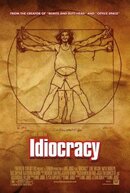I understand the notion of defending individual freedom, but what does this mean if you carry on the thought?
Okay, let's take a look at your examples.
Total individual freedom (do anything as long as you don't hurt others) means:
- completely legalize heroin and other hard drugs (driving under the influence of drugs would still not be allowed)
This is where nuance comes into play. Heroin and other hard drugs tend to mess up the mind (such as cocaine and methamphetamine triggering psychotic states where people can literally 'go crazy') and/or the will (addition itself) and judgment/self-control to the point where the user effectively loses some decisional capacity and becomes a hazard to other people.
The example would be cigarette smoking. I see t.v. ad.s claiming smoking kills 1 in 4 smokers. I don't know whether that's accurate, but it does kill a lot of people. But 2nd hand smoke seems to be a particularly minor threat to others, overall, smokers can generally drive and function in society, and they don't generally break into other peoples' homes & stores to fund their habit. So here we have a 'drug' where self-harm is the key issue, and it is legal.
- no compulsory seatbelts in cars
Yes, probably the best example for differentiating those people who prioritize personal free will & liberty vs. those who prioritize general well-being 1st. I wear a seat belt because it is wise; I bitterly resent the effort of government to force me to do so. To me, this one issue best represents the concept in our nation's founding documents of the Freedom of the Pursuit of Happiness. What else does that mean? Why else is it written in, if not to answer questions like this?
- do not try to stop people comitting suicide, it's their choice
And a lot of people would agree. From what I see working in mental health, a very simple take on this complex issue would be:
1.) A lot of suicidal people have compromised judgment when they make the attempt, or leading up to it.
2.) A lot of suicidal people, if prevented, do not re-attempt later, and while a lot do, many do go on to lead lives with some measure of quality.
3.) Many suicidal people don't so much want to be dead as they wish to escape a miserable situation.
4.) People who do rationally elect to pursue suicide of their own free will and in the context of an informed decision (e.g.: very painful terminal illness with no practical hope to recovery; wretched quality of life) have considerable support, leading to legalization of Physician-assisted suicide in some places.
- no compulsory school education
- etc.
Minors are not viewed as competent to have and to exercise the full rights and privileges of adults. The only application I see here is that of whether the State can make parents send their kids to school. The issue of the State's right to intervene in child welfare issues, such as abuse, neglect, immunization, exploitation and education, would be too major a tangent to go off on. We don't force adults to go to school.
I realize I propably have a different view on this due to being European, but it seems you can prevent a lot of unnecessary deaths for the expense of some 'liberty'.
Which again gets back to the question of whether we 'give' people liberty (if we think it's ours to give to begin with) because it's a fundamental human right needful for life to have meaning, or whether we do so as 'the State' when we think it's for their own good, but can with hold it when we disagree.
What you said about nationality and view got me thinking - many people who came to the U.S. were fleeing oppression of their religious liberty in Europe (though there were other reasons for coming), and the issue of governmental control came up in the Revolutionary War, when U.S. citizens were willing to fight, die and kill in the pursuit of liberty and self-determination. You could argue that just submitting to British rule would have resulted in a much lower body count. But somehow people thought there was something worth fighting for, and more to life than the most people breathing for the longest time.
In reference to the role of the military in securing our freedoms, people in the U.S. often say to remember that 'Freedom isn't free.' That is true. But some of the blood price we pay for liberty is the blood of people using their liberty to make bad decisions.
Richard.




